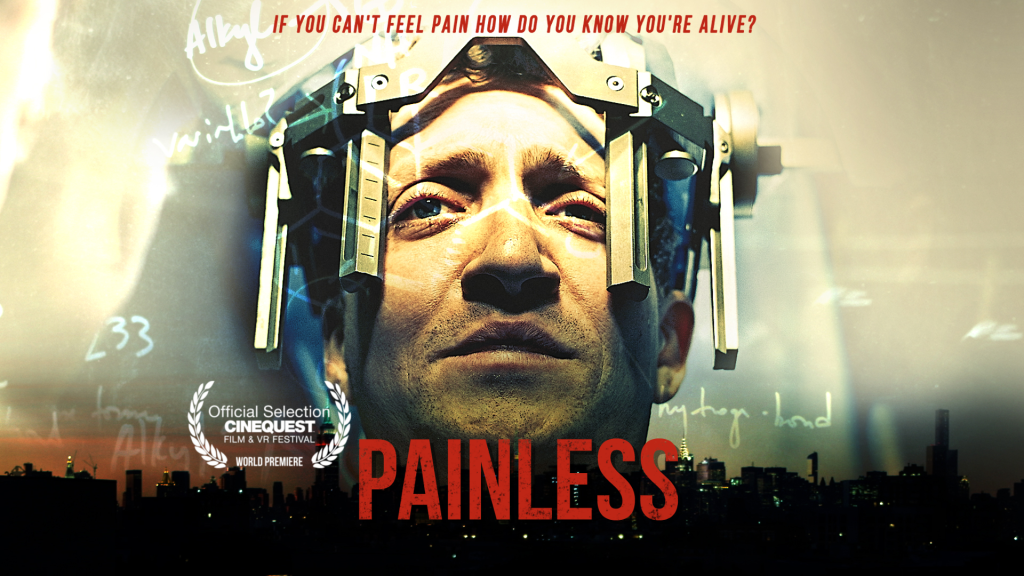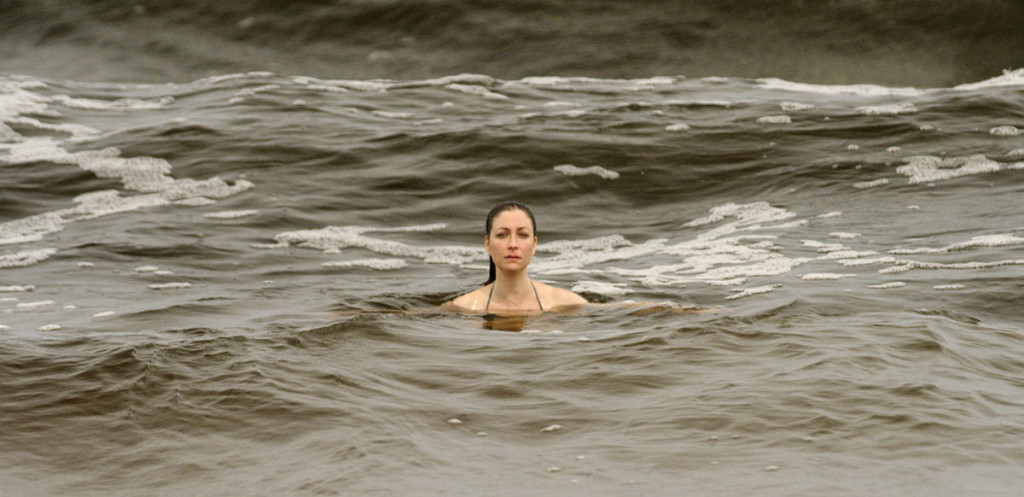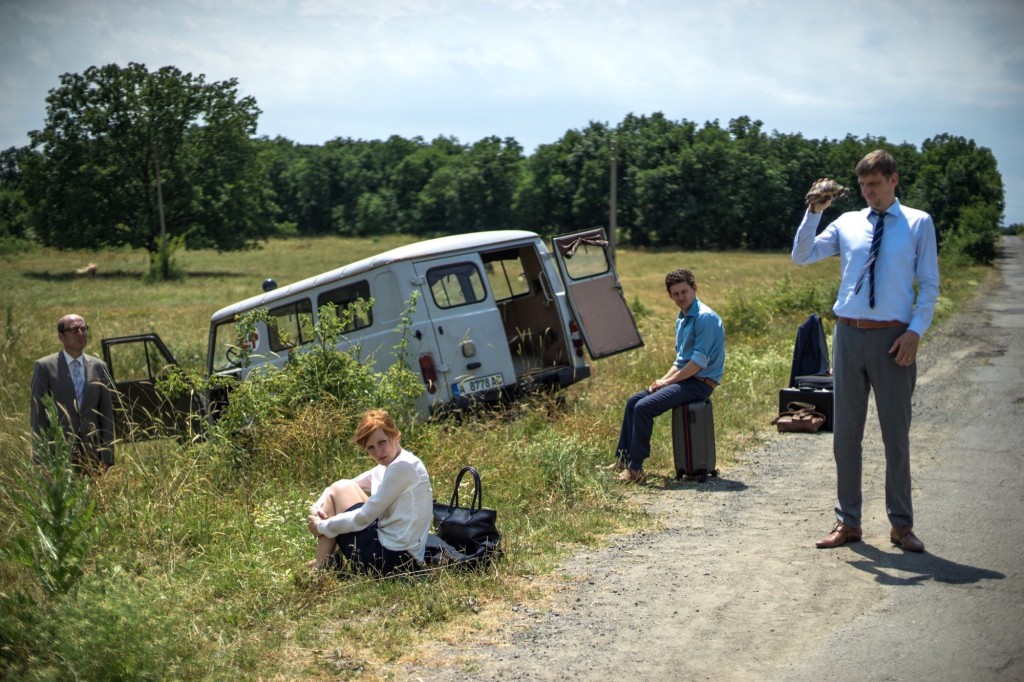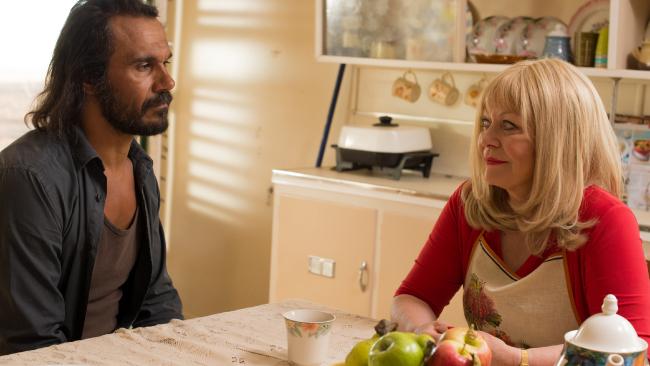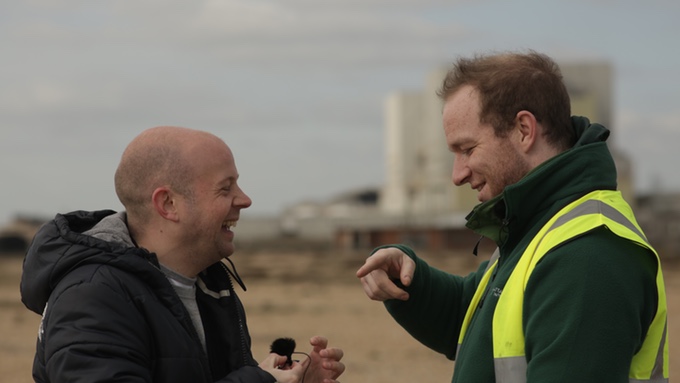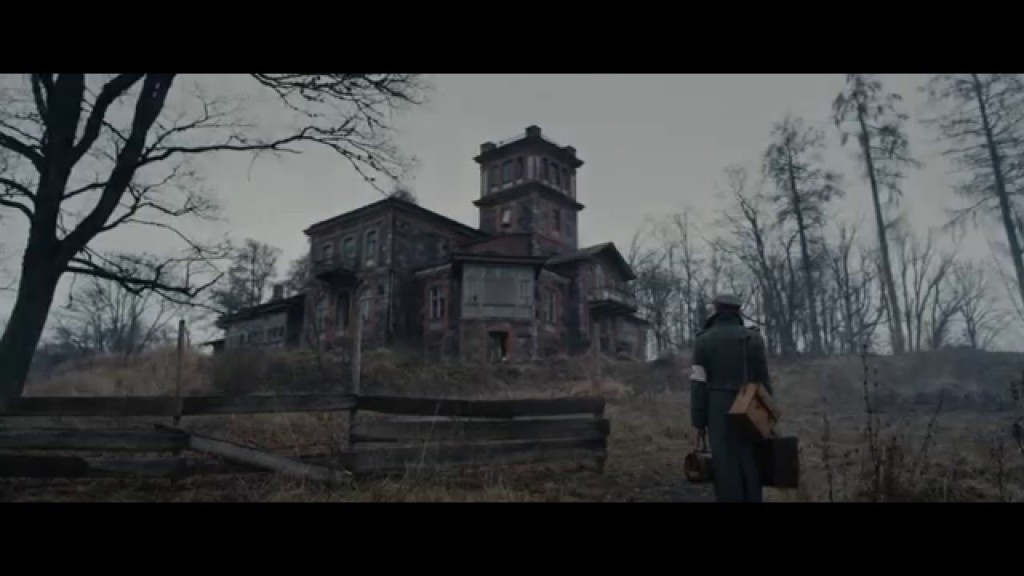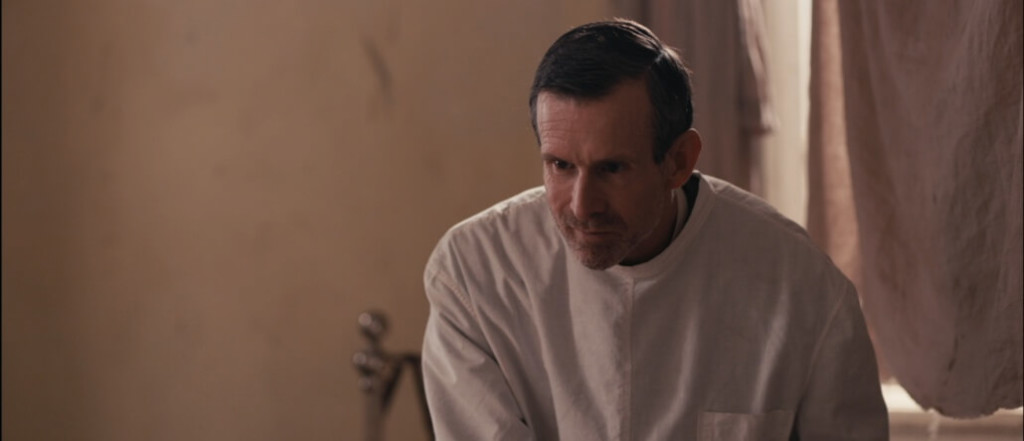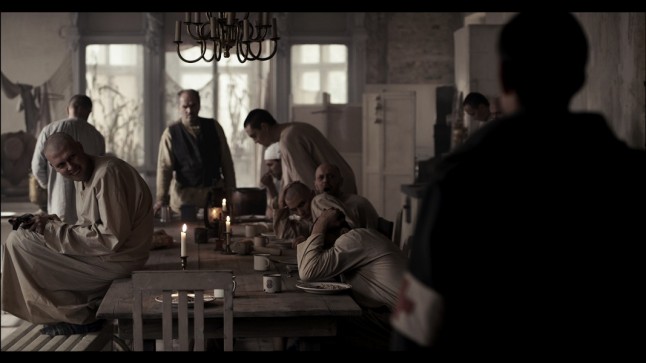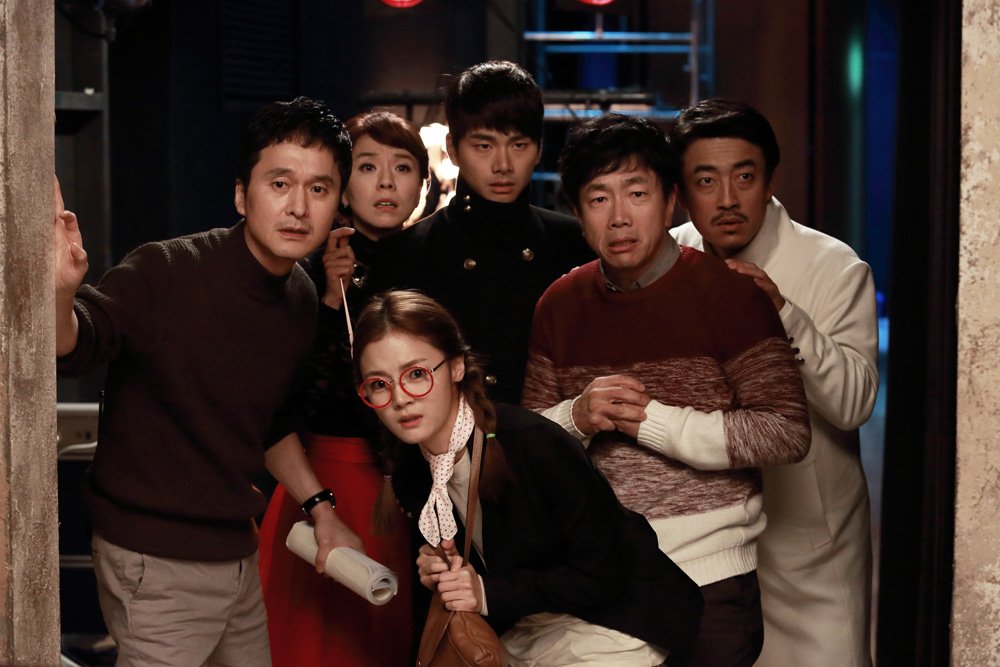In writer-director Jordan Horowitz’ first narrative feature, Painless, he brings us a wholly original premise – a man who cannot experience physical pain. And here’s another twist – freedom from pain is a BAD thing. Pain does serve an important purpose by alerting us to our own injury and illness. The protagonist, Henry (Joey Klein) is obsessed with finding a solution to his condition.
Henry lives a solitary existence as an underground scientist, who makes his living by manufacturing recreational designer drugs. Self-taught, he has become a genius at diagnostics, and the audience will enjoy the Sherlock Holmes moments when he surprises someone by correctly nailing their medical condition. His obsession drives him to traffic with a disgraced medical researcher, and risk a sketchy drug trial. Along the way, he meets a very appealing free spirit (Evalena Marie) who seeks to distract him from the totality of his obsession.
Of course, the idea of a character obsessed with finding a cure for NO pain, when the global pharmaceutical industry is basically built on the quest for the opposite, is brilliantly absurdist. But Horowitz, as the director, gets the audience to buy in right away.
Joey Klein superbly brings alive both Henry’s eccentricities and the drive that masks his loneliness. It’s an excellent performance.
Desperation leads to obsession and, finally, to self discovery. Cinequest hosts the world premiere of Painless.

